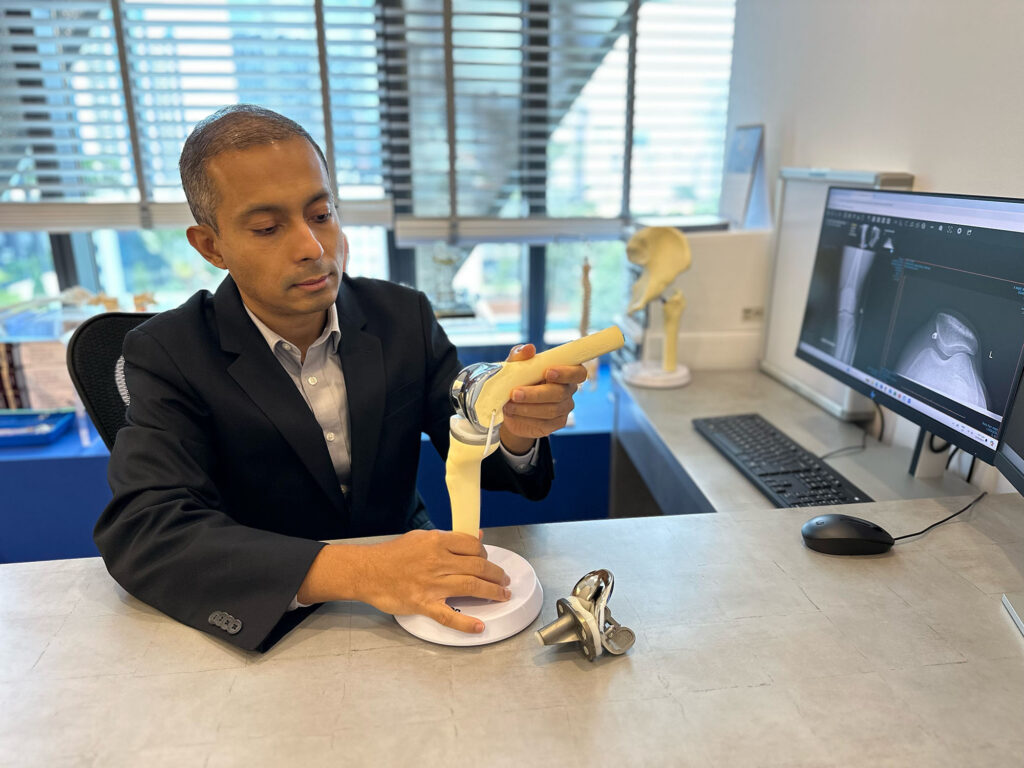Shoulder Conditions
When Shoulder Pain and Instability Disrupt Everyday Life
The shoulder is the most mobile joint in the body, allowing us to lift, reach, and rotate our arms. But this flexibility makes it vulnerable to injuries and wear-and-tear problems. At Mash Spine & Orthopaedics, we diagnose and treat a wide range of shoulder conditions.
Common Shoulder Conditions We Manage
Click below to learn more about each condition:




Symptoms That Shouldn’t Be Ignored
Shoulder issues can range from mild to severe, but certain symptoms are signs that you should see a doctor:
- Pain that lingers for more than a few weeks
- Weakness when lifting or rotating the arm
- A popping or clicking sensation in the joint
- Shoulder slipping out of place, even during simple movements
- Pain or stiffness that affects sleep or work

How We Diagnose Shoulder Problems
Assessment usually involves:
- Physical examination – testing range of motion, strength, and stability
- Imaging – X-rays for bone alignment, MRI or ultrasound for soft tissues
- Special tests – checking for impingement or labral injury

Treatment Options for Shoulder Conditions
Most shoulder problems can be managed without surgery, though treatment depends on the cause and severity:
- Non-surgical options: physiotherapy, activity modification, pain relief medication, and injections
- Arthroscopy (keyhole surgery): to repair rotator cuff or labral tears, or stabilise the joint
- Shoulder replacement surgery: considered for severe arthritis or irreparable damage
Frequently Asked Questions (FAQ)
Pain often comes from overuse, strain, or arthritis, while instability means the shoulder feels loose or slips out of place. Both can overlap.
Yes, many conditions improve with physiotherapy, rest, and medication. Surgery is considered only if non-surgical care doesn’t help.
Recovery varies, from a few weeks for minor strains to several months after surgery. Rehabilitation is key to regaining full function.
Yes, arthritis can affect the shoulder, though it’s less common than knee or hip arthritis. It may cause stiffness, pain, and reduced motion.
If the shoulder looks deformed after an injury, if you cannot move your arm, or if numbness or weakness occurs, seek care immediately.
Book a Consultation for Shoulder Pain or Instability
Don’t let shoulder pain interfere with your daily life. Book an appointment at Mash Spine & Orthopaedics for an assessment and treatment plan tailored to your condition.




